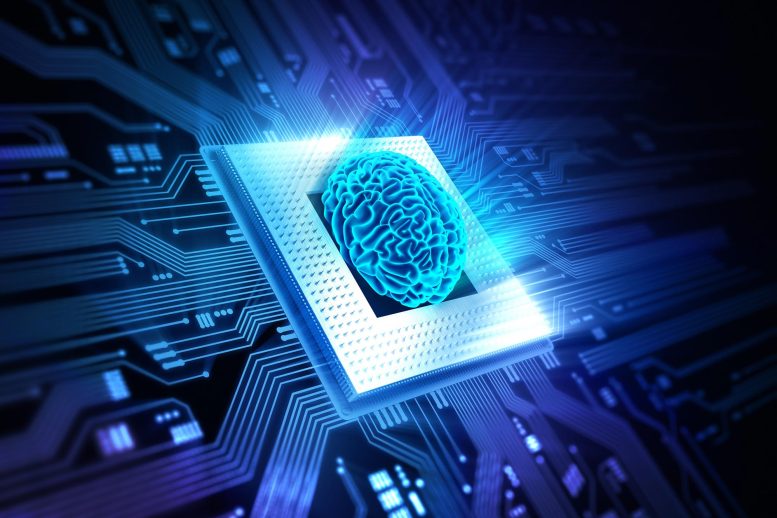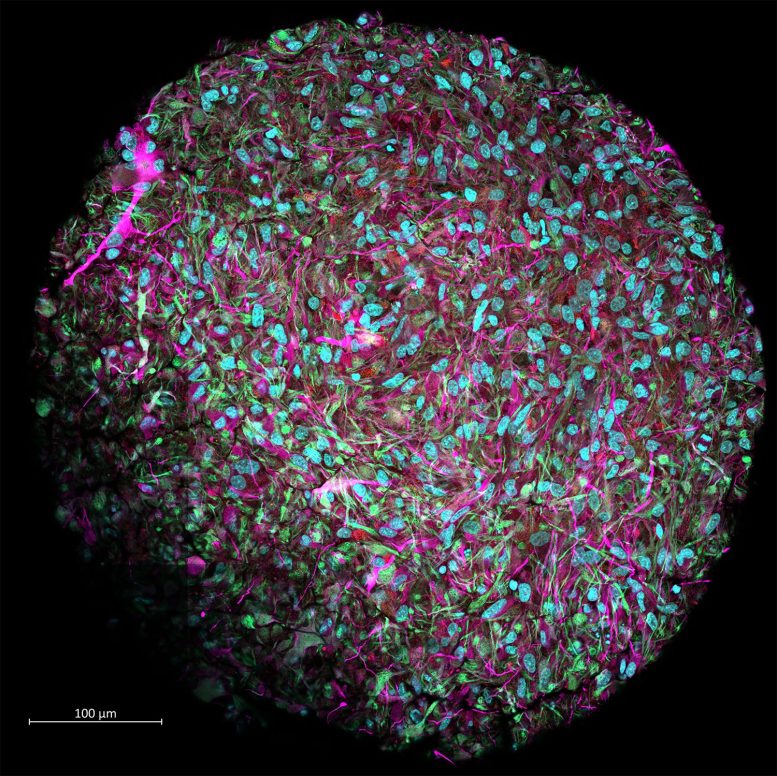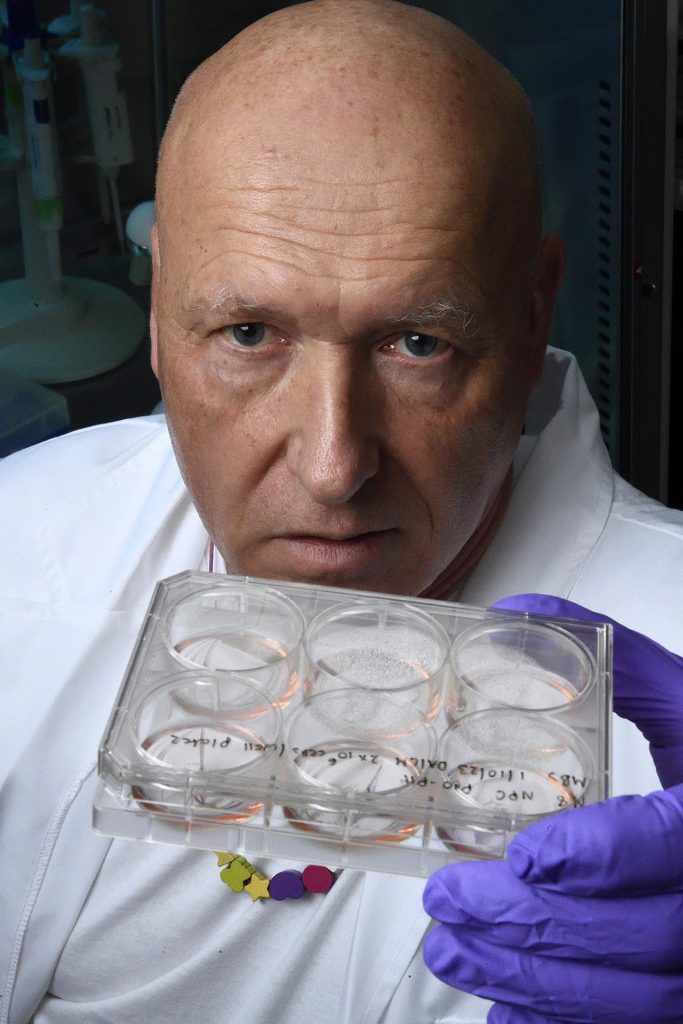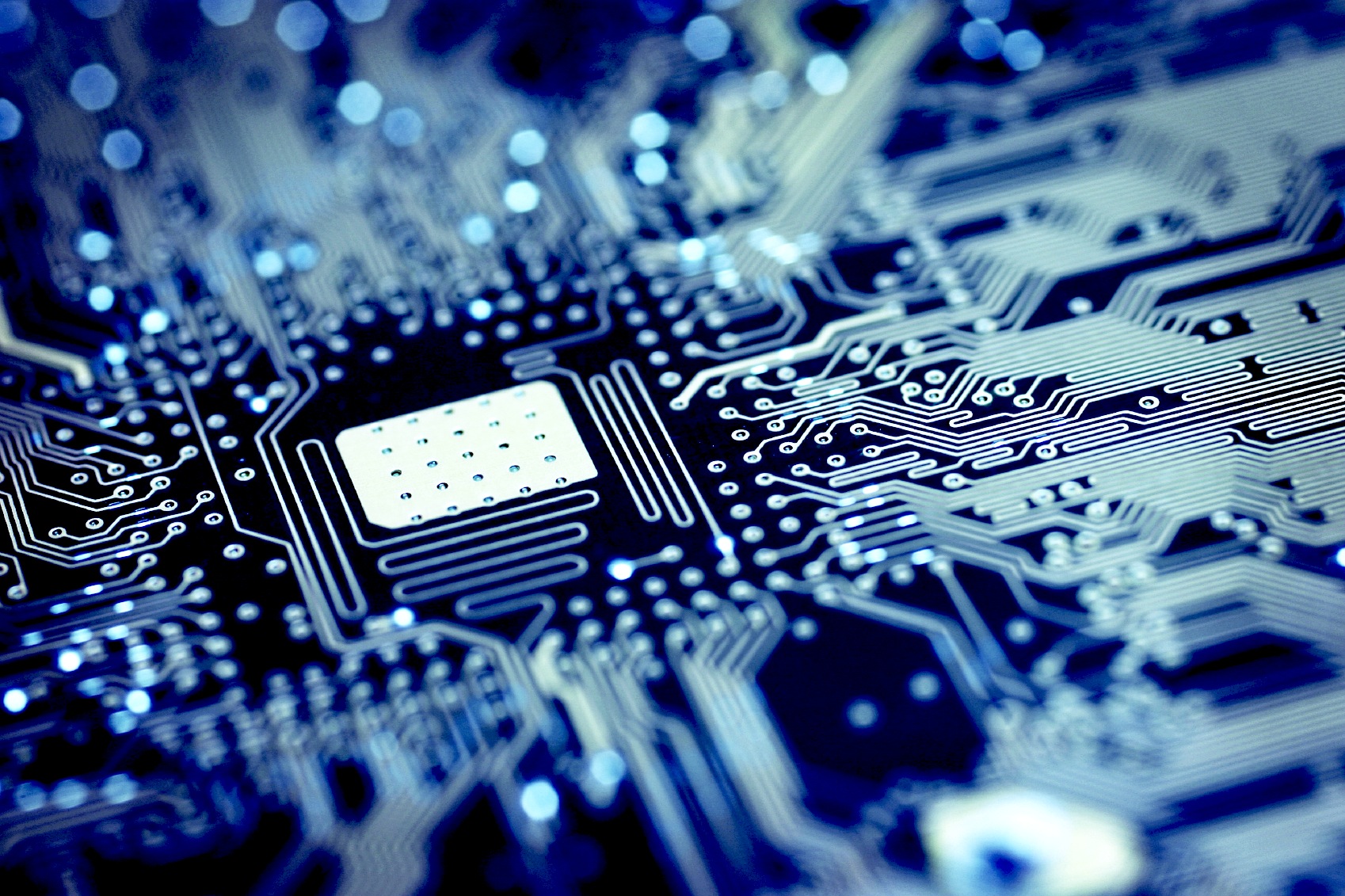
Organoid intelligence (OI) is an rising medical space that seeks to create biocomputers by utilizing lab-grown thoughts organoids as “natural {{hardware}}.”
Johns Hopkins researchers wreck flooring on new space of ‘organoid intelligence’.
According to researchers at Johns Hopkins School, a “biocomputer” powered through human thoughts cells might be superior within our lifetime. This era is anticipated to exponentially enlarge the features of current computing and open up new areas of research.
The workforce’s plan for “organoid intelligence” was once outlined in a recent article revealed inside the journal Frontiers in Science.
“Computing and artificial intelligence have been driving the era revolution nonetheless they’re attaining a ceiling,” said Thomas Hartung, a professor of environmental properly being sciences on the Johns Hopkins Bloomberg College of Public Effectively being and Whiting College of Engineering who’s spearheading the work. “Biocomputing is a big effort of compressing computational power and lengthening its efficiency to push earlier our current technological limits.”

Magnified image of a thoughts organoid produced in Thomas Hartung’s lab, dyed to show neurons in magenta, cell nuclei in blue, and totally different supporting cells in crimson and inexperienced. Credit score rating: Jesse Plotkin/Johns Hopkins School
For nearly 20 years scientists have used tiny organoids, lab-grown tissue comparable to utterly grown organs, to experiment on kidneys, lungs, and totally different organs with out resorting to human or animal attempting out. Additional simply recently Hartung and colleagues at Johns Hopkins have been operating with thoughts organoids, orbs the scale of a pen dot with neurons and totally different choices that promise to take care of basic functions like learning and remembering.
“This opens up evaluation on how the human thoughts works,” Hartung said. “Because of you’ll get began manipulating the machine, doing points you may’t ethically do with human brains.”
Hartung began to develop and acquire thoughts cells into purposeful organoids in 2012 using cells from human pores and pores and skin samples reprogrammed into an embryonic stem cell-like state. Each organoid accommodates about 50,000 cells, in regards to the dimension of a fruit fly’s fearful machine. He now envisions building a futuristic laptop computer with such thoughts organoids.
Laptop programs that run on this “natural {{hardware}}” might inside the subsequent decade begin to alleviate energy-consumption requires of supercomputing which will be becoming an growing variety of unsustainable, Hartung said. Even though laptop programs process calculations involving numbers and knowledge ahead of individuals, brains are loads smarter in making superior logical selections, like telling a canine from a cat.

Thomas Hartung with thoughts organoids in his lab on the Johns Hopkins Bloomberg College of Public Effectively being. Credit score rating: Will Kirk/Johns Hopkins School
“The thoughts continues to be unequalled through fashionable laptop programs,” Hartung said. “Frontier, the latest supercomputer in Kentucky, is a $600 million, 6,800-square-feet arrange. Finest in June of closing 12 months, it exceeded for the first time the computational functionality of a single human thoughts — nonetheless using 1,000,000 cases further energy.”
It might take a few years forward of organoid intelligence can power a tool as wise as a mouse, Hartung said. Nonetheless through scaling up manufacturing of thoughts organoids and training them with artificial intelligence, he foresees a long run the place biocomputers reinforce superior computing velocity, processing power, information efficiency, and storage features.
“It’ll take a few years forward of we attain the aim of 1 factor associated to any type of laptop computer,” Hartung said. “However after we don’t get began rising funding strategies for this, it’ll be much more powerful.”
Organoid intelligence might also revolutionize drug attempting out evaluation for neurodevelopmental points and neurodegeneration, said Lena Smirnova, a Johns Hopkins assistant professor of environmental properly being and engineering who co-leads the investigations.
“We want to study thoughts organoids from most frequently superior donors versus thoughts organoids from donors with autism,” Smirnova said. “The gear we’re creating in opposition to natural computing are the same gear which will allow us to know changes in neuronal networks specific for autism, without having to utilize animals or to get admission to victims, so we’ll understand the underlying mechanisms of why victims have these cognition issues and impairments.”
To guage the ethical implications of operating with organoid intelligence, a varied consortium of scientists, bioethicists, and contributors of most people have been embedded all through the workforce.
Reference: “Organoid intelligence (OI): the model new frontier in biocomputing and intelligence-in-a-dish” through Lena Smirnova, Brian S. Caffo, David H. Gracias, Qi Huang, Itzy E. Morales Pantoja, Bohao Tang, Donald J. Zack, Cynthia A. Berlinicke, J. Lomax Boyd, Timothy D. Harris, Erik C. Johnson, Brett J. Kagan, Jeffrey Kahn, Alysson R. Muotri, Barton L. Paulhamus, Jens C. Schwamborn, Jesse Plotkin, Alexander S. Szalay, Joshua T. Vogelstein, Paul F. Worley and Thomas Hartung, 27 February 2023, Frontiers in Science.
DOI: 10.3389/fsci.2023.1017235
Johns Hopkins authors integrated: Brian S. Caffo, David H. Gracias, Qi Huang, Itzy E. Morales Pantoja, Bohao Tang, Donald J. Zack, Cynthia A. Berlinicke, J. Lomax Boyd, Timothy DHarris, Erik C. Johnson, Jeffrey Kahn, Barton L. Paulhamus, Jesse Plotkin, Alexander S. Szalay, Joshua T. Vogelstein, and Paul F. Worley.
Totally different authors integrated: Brett J. Kagan, of Cortical Labs; Alysson R. Muotri, of the School of California San Diego; and Jens C. Schwamborn of School of Luxembourg.
Provide By means of https://scitechdaily.com/a-new-field-of-computing-powered-by-human-brain-cells-organoid-intelligence/


